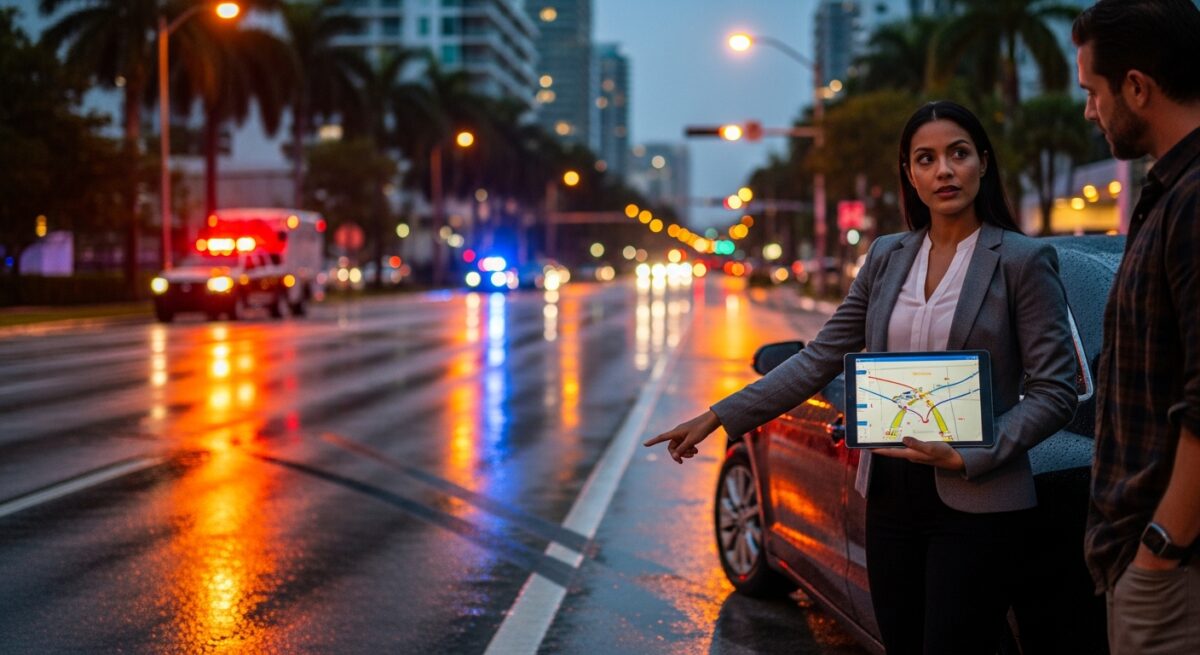What Personal Injury Protection Should I Get to Stay Fully Protected?

Understanding Personal Injury Protection (PIP) is essential for navigating auto insurance. Many drivers ask, what personal injury protection should I get? PIP coverage helps cover medical expenses and related costs after an accident, regardless of fault, making it crucial for recovery.
Understanding Personal Injury Protection (PIP)
What is Personal Injury Protection (PIP)?
PIP is a type of auto insurance that covers medical expenses, lost wages, and other costs from car accidents. Unlike liability insurance, PIP protects you and your passengers, which is especially beneficial in no-fault states where PIP is mandatory.
Key Benefits of PIP Coverage
- Medical Expenses: Covers medical bills for you and your passengers, including hospital stays and rehabilitation.
- Lost Wages: Replaces a portion of your income if you’re unable to work due to injuries.
- Funeral Costs: Assists with funeral expenses in the event of a fatal accident, easing financial burdens on families. With over 38,000 fatalities from car accidents in the U.S. annually, adequate PIP coverage is vital for financial protection during tough times.
How Much PIP Coverage Do You Need?
Choosing the right PIP coverage can be challenging. Consider these factors:
- State Requirements: Minimum coverage levels vary by state.
- Personal Health Insurance: Assess your health plan’s limitations regarding auto accidents.
- Financial Situation: Evaluate your ability to cover medical expenses out-of-pocket. Ultimately, the answer to what personal injury protection should I get depends on your unique circumstances. Consulting an insurance agent can help tailor a suitable policy.
Types of Personal Injury Protection Coverage
Navigating auto insurance can be confusing, especially when it comes to understanding what personal injury protection (PIP) coverage you should get. PIP is designed to cover medical expenses and, in some cases, lost wages for you and your passengers, regardless of fault in an accident. This coverage can be crucial when unexpected medical bills arise after a car accident. Let’s explore the different types of PIP coverage available to help you make an informed decision.
Basic PIP Coverage
- Medical Expenses: Covers hospital bills, doctor visits, and rehabilitation costs.
- Lost Wages: Replaces a portion of your income if you’re unable to work due to injuries.
- Funeral Expenses: Covers costs in the event of a fatal accident.
Basic PIP is often the minimum required by law and provides essential financial support, reducing stress during recovery. States with mandatory PIP see a 20% decrease in uninsured motorist claims, underscoring its importance.
Extended PIP Coverage
- Additional Medical Coverage: Includes alternative treatments like chiropractic care.
- Household Services: Pays for help with daily tasks if you’re injured.
- Higher Wage Replacement: Offers a greater percentage of lost wages.
Extended PIP is ideal for those seeking extra peace of mind, as it covers more extensive needs and helps with daily challenges after an accident.
Optional PIP Coverage
- Coverage for Passengers: Extends benefits to passengers in your vehicle.
- Non-Work Related Injuries: Covers injuries outside of work.
- Higher Limits: Allows for increased coverage on medical expenses and lost wages.
Optional PIP lets you customize your policy to fit your lifestyle, which is particularly beneficial for those who frequently drive with passengers. Understanding what personal injury protection you should get is essential for safeguarding your financial future after an accident. By evaluating the types of PIP coverage available, you can choose a policy that best meets your needs.
Factors to Consider When Choosing PIP
Navigating auto insurance often leads to the question: what personal injury protection should I get? Personal Injury Protection (PIP) is essential as it covers medical expenses and, in some cases, lost wages after an accident, regardless of fault. Understanding the factors influencing your PIP coverage can help you make an informed choice that suits your needs.
Choosing the right PIP coverage can be simplified by focusing on key considerations:
Coverage Limits
- State Requirements: Be aware of your state’s minimum PIP coverage requirements.
- Personal Needs: Evaluate your health insurance to determine how much additional coverage you may need.
Medical Expenses
- Types of Expenses Covered: PIP generally covers hospital bills, rehabilitation, and sometimes funeral costs. Knowing what is included helps gauge necessary coverage.
- Average Costs: The National Safety Council reports that a hospital stay after a car accident can exceed $10,000, highlighting the need for adequate PIP coverage.
Lost Wages
- Income Replacement: PIP can compensate for lost wages if you’re unable to work due to injuries. Assess how much income you need to replace during recovery.
- Duration of Coverage: Check how long your PIP will cover lost wages during your recovery period.
Additional Benefits
- Household Services: Some policies cover household services if you cannot perform them due to injuries.
- Death Benefits: PIP can also provide death benefits for dependents in tragic cases.
By considering these factors, you can effectively determine what personal injury protection should I get, ensuring your policy meets your unique needs.
State Requirements for Personal Injury Protection
Understanding personal injury protection (PIP) is essential when navigating car insurance, as it can significantly impact your financial security after an accident. The question of what personal injury protection should I get often depends on your state’s requirements and personal needs. Let’s explore how these requirements vary across the U.S.
PIP coverage is not uniform across the country; each state has its own laws and regulations. Here’s a summary of how PIP requirements differ:
Mandatory PIP States
- No-Fault Insurance: Drivers must carry PIP insurance, which covers medical expenses and lost wages regardless of fault.
- Coverage Limits: States set minimum coverage limits, such as New York’s $50,000 and Florida’s $10,000. Knowing these limits is crucial for compliance and protection.
Optional PIP States
- Choice of Coverage: In these states, drivers can decide whether to include PIP in their policy, allowing for tailored coverage based on individual circumstances.
- Consider Your Needs: Evaluate your health insurance, financial stability, and driving frequency to determine the appropriate PIP coverage for you.
Statistical Insights
- About 12% of U.S. drivers are uninsured, making PIP even more vital in high uninsured rate states. Without it, you risk significant out-of-pocket expenses after an accident.
- PIP can cover up to 80% of medical expenses, highlighting the importance of understanding your state’s requirements to make informed coverage decisions.
Comparing Personal Injury Protection Options
Understanding what personal injury protection (PIP) you should get is essential for safeguarding your finances after an accident. PIP covers medical expenses and, in some cases, lost wages, regardless of fault, offering peace of mind during tough times. With various options available, it’s important to know how to choose the right one.
Understanding Personal Injury Protection Options
PIP can differ significantly among insurance providers. Here are key factors to consider:
Coverage Limits
- Basic Coverage: Many states offer minimum coverage, which may leave you underinsured in serious accidents.
- Enhanced Coverage: Policies with higher limits for medical expenses and lost wages are advisable, especially if you have dependents or significant financial obligations.
Additional Benefits
- Rehabilitation Costs: Some policies cover rehabilitation services, crucial for recovery after an accident.
- Household Services: Look for coverage that assists with household tasks if you’re unable to perform them due to injuries.
State Requirements
- No-Fault States: PIP is often mandatory, so understanding minimum requirements is vital.
- At-Fault States: PIP may be optional but can still protect you from high medical costs.
Making the Right Choice
To choose the right PIP, consider your needs, compare quotes, read reviews, and consult an expert for personalized advice. This approach will help you make an informed decision.
FAQs
Q: Should I get personal injury protection coverage?
A: If you want to ensure your medical expenses and lost wages are covered after an accident, getting personal injury protection (PIP) coverage is a smart choice, especially if your state requires it.
Q: Is it worth getting personal injury cover?
A: Yes, personal injury cover is often worth it because it helps cover costs quickly regardless of fault, reducing out-of-pocket expenses after an accident.
Q: What is PIP and do I need it?
A: PIP stands for Personal Injury Protection, a type of insurance that covers medical bills and other related expenses after a car accident. Whether you need it depends on your state laws and personal risk tolerance.
Q: What is a good PIP amount?
A: A good PIP coverage amount varies, but typically ranges from $10,000 to $50,000. Consider your healthcare costs, income, and potential medical needs when choosing a limit.
Final Thoughts
Deciding what personal injury protection you should get depends on your personal circumstances and local requirements. While PIP can add to your insurance costs, it provides valuable financial protection after an accident. Assess your needs carefully and consult with an insurance professional to choose the right coverage amount for peace of mind on the road.
Your time matters—so does your case. Get a free evaluation at LegalCaseReview.com or call 📞 (833) 279-1850.



